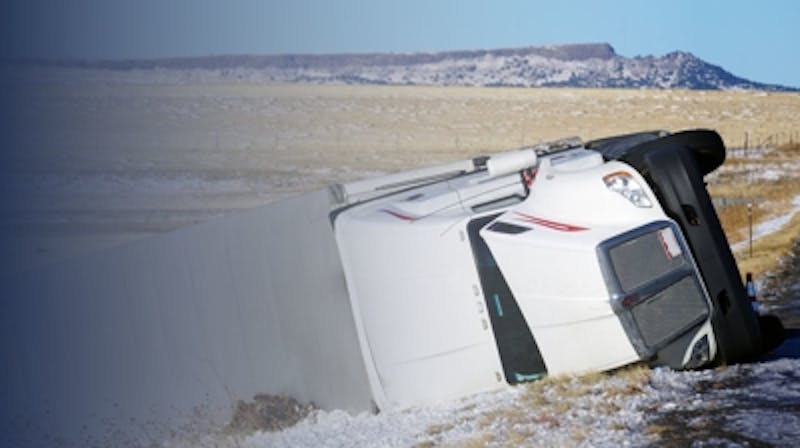
Understanding Trucking AccidentsFederal Regulations and Compliance Failures
Trucking accidents are a significant concern on our nation's highways, and understanding the role of federal oversight is crucial. The Federal Motor Carrier Safety Administration (FMCSA) sets the stage for safety by enforcing strict regulations designed to protect everyone on the road. However, compliance failures can and do occur, leading to catastrophic outcomes. Common issues such as exceeding hours-of-service limits, inadequate driver training, and failure to meet vehicle inspection standards are just a few examples of how non-compliance can pave the way to disaster. These lapses not only endanger lives but also open the door to legal consequences for the parties involved.
Driver Error and Negligence
When it comes to trucking accidents, driver error remains a leading cause. Factors like driver fatigue, distraction, and impairment are not just statistics; they represent real-world lapses in judgment and concentration that can have dire consequences. Studies have shown that long hours on the road can lead to decreased alertness and slower reaction times, while distractions such as mobile devices further compound the risks. Impairment from substances, whether legal or illegal, can also severely affect a driver's ability to operate a commercial vehicle safely. These elements of human error underscore the importance of rigorous enforcement of safety standards and the need for continuous education on safe driving practices.
Determining Liability in Trucking Accidents
The Role of the Trucking Company
In the aftermath of a trucking accident, one critical question often arises: who is liable? The concept of vicarious liability places the trucking company in the legal spotlight, potentially holding them accountable for the actions of their drivers. This legal principle asserts that employers can be responsible for the negligence of their employees while they are performing job-related duties. However, determining the extent of a company's liability involves scrutinizing their adherence to safety protocols, driver supervision, and the adequacy of their training programs. These factors can significantly influence the outcome of legal proceedings following a trucking accident.
Driver Liability and Independent Contractors
While trucking companies may bear the brunt of liability, there are instances where the drivers themselves can be held personally accountable. This is particularly true in cases of gross negligence or willful misconduct. The complexities multiply when dealing with independent contractors, as the lines of responsibility can become blurred. The legal distinction between an employee and an independent contractor affects liability, insurance, and compensation claims. Understanding these nuances is essential for anyone navigating the aftermath of a trucking accident, as it impacts the direction and strategy of legal action.
Investigating a Trucking Accident
Evidence Collection and Analysis
The investigation of a trucking accident is a meticulous process that hinges on the collection and analysis of evidence. Key pieces of this puzzle include black box data, which can reveal crucial details about the truck's speed, braking, and engine performance before the collision. Logbooks, too, are invaluable, offering insights into the driver's hours on the road and adherence to rest requirements. Gathering this evidence promptly is vital, as it forms the foundation of a legal case and helps establish the facts amidst the chaos that follows a serious accident.
Expert Witnesses and Accident Reconstruction
Expert witnesses play an indispensable role in the legal scrutiny of a trucking accident. These specialists bring their knowledge of industry standards and practices to bear, often reconstructing the events to shed light on what transpired. Their testimony can make or break a case by clarifying technical aspects for the court, such as the mechanics of a vehicle failure or the impact of road conditions. Accident reconstruction involves a blend of science and experience, and the insights gleaned from these experts help ensure that justice is served in the wake of a tragedy.
Impact of Trucking Accidents
Personal Injury and Wrongful Death Claims
The toll of trucking accidents extends far beyond the immediate chaos and wreckage. For victims and their families, the journey through personal injury and wrongful death claims can be long and arduous. The legal avenues for compensation are complex, with various types of damages up for consideration. Victims may seek restitution for medical expenses, lost wages, and other tangible losses, as well as for the more intangible suffering that often accompanies such traumatic events. Navigating these claims demands a thorough understanding of the law and a compassionate approach to the human cost of these accidents.
Economic and Non-Economic Damages
In the realm of trucking accident litigation, damages are categorized into two main types: economic and non-economic. Economic damages cover quantifiable losses such as medical bills, rehabilitation costs, and lost income. Non-economic damages, on the other hand, encompass the pain and suffering, emotional distress, and loss of enjoyment of life that are harder to measure but equally significant. Calculating these damages requires a nuanced understanding of both the immediate and long-term effects of the accident on an individual's life, and it is here that the expertise of a seasoned legal team becomes invaluable.
Preventing Trucking Accidents
Safety Training and Education Programs
The prevention of trucking accidents is not just a matter of regulatory compliance; it is also about fostering a culture of safety through training and education. Trucking companies have a responsibility to ensure that their drivers are equipped with the knowledge and skills necessary to navigate the roads safely. Ongoing safety training programs serve as a reminder of best practices and a deterrent against complacency. By prioritizing education, the industry can work towards reducing the frequency of accidents and the associated human and financial costs.
Technological Advancements and Safety Measures
As we look to the future, technological advancements hold the promise of making trucking safer for everyone. Innovations such as collision avoidance systems, lane departure warnings, and electronic logging devices are already making an impact. These technologies not only assist drivers in maintaining safe practices but also provide valuable data that can be analyzed to further improve safety measures. The integration of technology in the trucking industry is a critical step towards minimizing risks and protecting lives on the highways.
If you or a loved one has been affected by a trucking accident, know that you are not alone. 'MAGGIO LAW is here to provide the legal support and guidance you need during this challenging time. Our experienced truck accident attorneys understand the complexities of personal injury law and is dedicated to helping you secure the compensation you deserve. Contact us to discuss your case and explore your options. Let us help you navigate the road to recovery.
Call 'MAGGIO LAW now at (601) 265-6869 or send us a message online.

